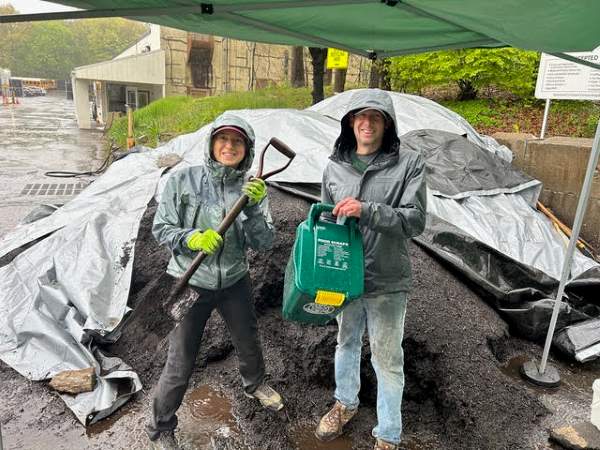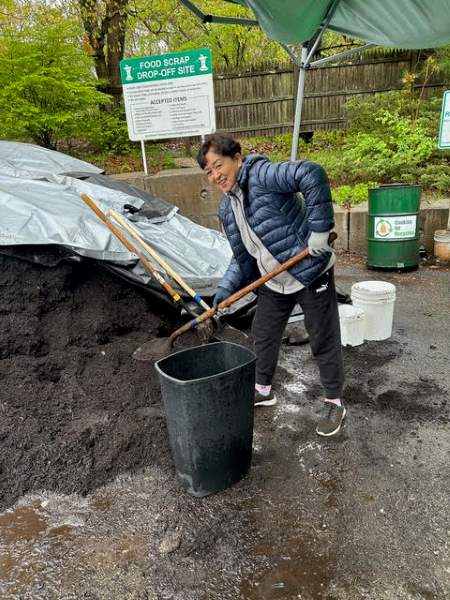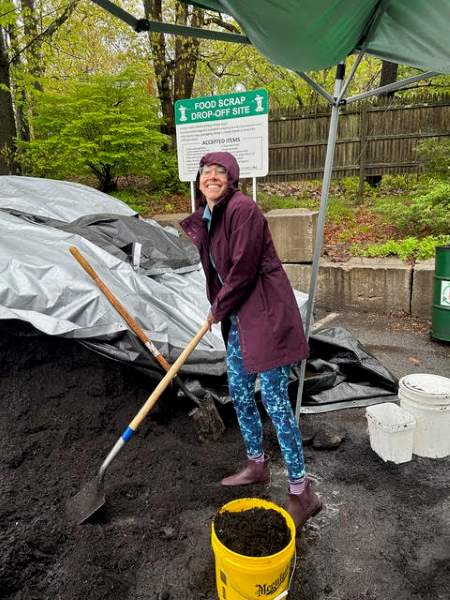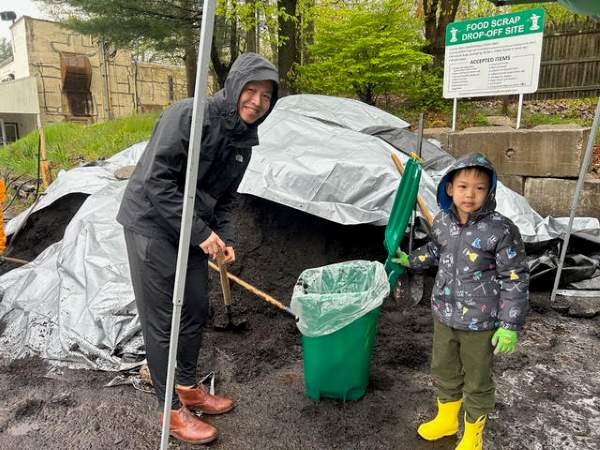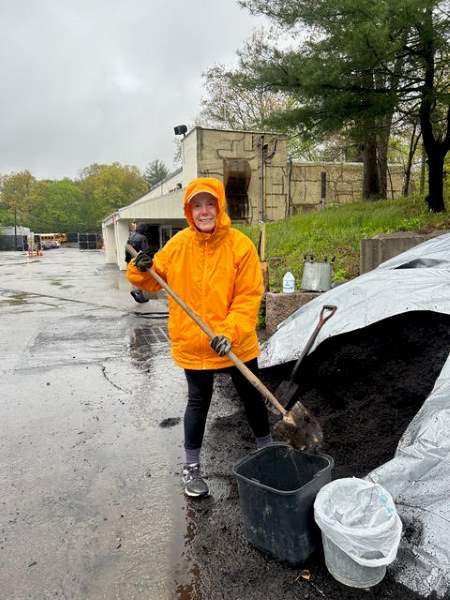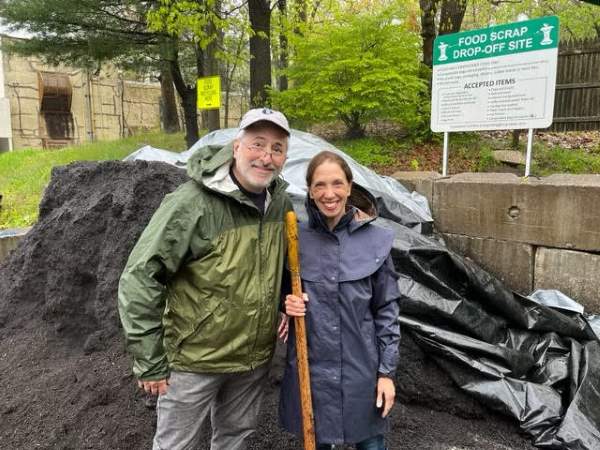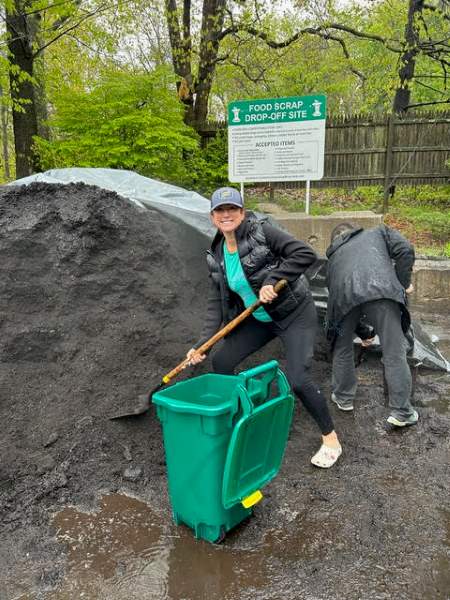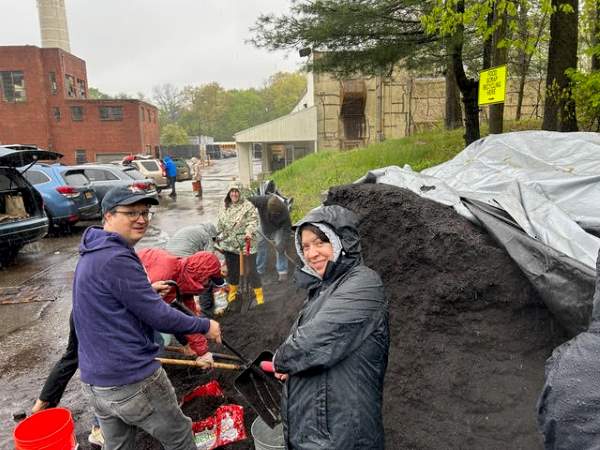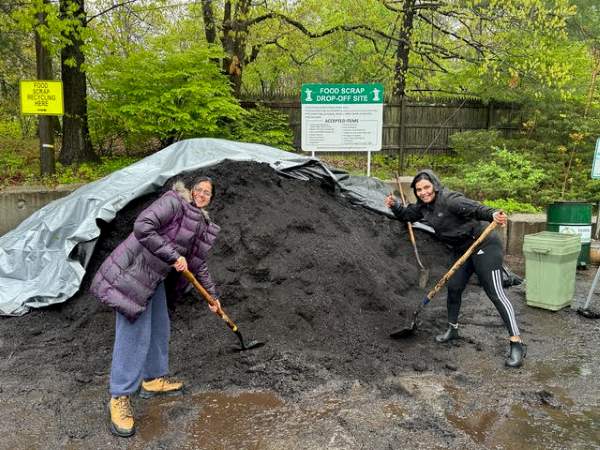China Takes Extreme Measures to Keep its Teens off TikTok
- Details
- Written by Sameer Ahuja
- Hits: 1695

The terms “iPad kid” and “screenager” have become increasingly popular terms to describe children and teenagers who excessively use screens, particularly in social settings. There are many culprits: YouTube, Netflix, Instagram, and Snapchat. But one of the biggest is TikTok, a highly addictive social media app that allows users to share short video clips. Sameer Ahuja, a Scarsdale Village Trustee and the President of sports tech company GameChanger, discussed China’s TikTok restrictions and steps that the United States could take to curb addiction.
Ahuja writes a newsletter, Consume at Once, that discusses how technology is transforming how we create and consume movies, videos, TV, games, sports, and social media. He recently wrote the following article: China Takes Extreme Measures to Keep its Teens off TikTok.
China Takes Extreme Measures to Keep its Teens off TikTok
Do you really know what your kids are watching online?
It’s no idle query. For years, ever since the Internet became ubiquitous, well-meaning parents have torn their hair out over the content their children consume. Back in the early 2000s, Eminem CDs and 50 Cent music videos had parents printing out lyrics from sites like Genius, intercepting what they deemed abhorrent content.
Now, in 2023, the debate is all about TikTok.
Last month, the company CEO Shou Zi found himself in the hot seat. The hearing, which occurred in the U.S. Congress, featured a series of questions surrounding the viral app, its capabilities, and its dangers.
Viewers may recall Mark Zuckerberg’s similar testimony years ago, where congresspeople sounded woefully unprepared to confront Facebook’s founder. The hearings led to discussions about advancing tech and its growing ability to eclipse our archaic legal system.
It also featured plenty of memes.
A seemingly ridiculous question during the recent TikTok hearing included, “So if I have a TikTok app on my phone and my phone is on my home WIFI network, does TikTok access that network?”
US Rep Mike Gallagher referred to TikTok a “national security threat,” saying, “We have to deal with it before it’s too late.” Whether you agree or not, it’s clear valid concerns exist, especially regarding youngsters' app usage.
The Chinese government, for its part, has placed strict limitations on their version of TikTok, Douyin. This isn’t the first time Beijing has flexed its muscles to clamp down on what they warn is an issue of “teen addiction.”
Two years ago, the nation instituted strict restrictions on video games. According to CNN, “China has barred online gamers under the age of 18 from playing on weekdays and limited their play to just three hours most weekends...” Compare this to American kids’ average of 13 hours a week playing video games, and the worries about disparities start to seep in.
Now, with the proliferation of short form video apps like TikTok, CCP officials warn of the same phenomenon and are determined to enforce, “the regulation of short videos and preventing underage users from becoming addicted.”
Through these restrictions and Douyin’s “teenager mode”, the app already restricts content, such as dangerous pranks, adult topics, and other content the state deems unsavory for kids. In fact, in China, users under 14 are shown wholesome videos promoting art and culture, science experiments, history lessons, and more. They can also only use it for 40 minutes a day.
This brings us to the debate for similar restrictions in America. As we know, Americans have never embraced perceived governmental overreach, from the time of the nation’s founding. Restrictions that “infringe on personal freedoms” rarely pick up steam in a country built on rugged individualism.
So how do we proceed, knowing full-well as China does, that even casual TikTok viewing can turn wildly addictive?
For one thing, as the experience with Eminem and 50 Cent prove, we cannot shield kids in perpetuity. This means any strategy can’t solely be restrictive. We must also encourage positive content viewing habits.
Instead of wagging our fingers at the mindless “junk” content, it’s imperative we substitute it with something better. (After all, this is what China is doing. Example: most American kids want to become YouTubers, not astronauts; in China, the situation is reversed.)
This brings up yet another related issue.
Ever since any notion of a shared mainstream pop culture has collapsed, each internet user seems to exist in their own bubble, especially our youth. This makes it harder to monitor content, especially because viewing now occurs largely via private devices in silo.
Returning to our question, what kinds of content do we wish for our kids? Should it all be informative and educational, a kind of add-on to school? Even Saturday morning cartoons once upon a time managed to infuse fun with learning. Maybe this is a valid approach worth pursuing?
My advice?
Emphasize at least some content that inspires curiosity and personal growth. For every dance trend clip, there could be a related video promoting musical history and/or culture. Likewise, sports highlights could be paired with motivational fitness content.
Videos inspiring action and especially community in an age of virtual disconnect could turn things around, especially for young people. Moreover, they needn’t come from some top-down edict.
Rather, an opportunity exists in the market for (positively) disruptive bottom-up influencers to produce and monetize content that uplifts audiences, especially young people. This kind of good reinforcement is more likely to be effective than a blanket ban.
As I wrote about last month, it’s in our hands to shake up our addictive dopamine cycle with something else, something better. And I believe the secret sauce is autonomy.
 Sameer AhujaAs parents, the most enlightened of us know we can’t control every aspect of our kids’ lives. But we can do our best to block the bad, and more importantly, engage our young ones’ curiosity by offering something better. Something positive.
Sameer AhujaAs parents, the most enlightened of us know we can’t control every aspect of our kids’ lives. But we can do our best to block the bad, and more importantly, engage our young ones’ curiosity by offering something better. Something positive.
But this message isn’t just aimed at parents. Collectively, we are all going through a kind of digital adolescence, an age of deep uncertainty and confusion as we learn to assimilate newfound technological powers and infinite content made by anyone, anywhere in the world.
This brave new era comes with new responsibilities—and yes, privileges—our ancestors never had. My final advice? Hold more conversations with your kids about their viewing habits. And rather than ask: “What content are you watching?” Instead, ask: “Why are you watching that content?”
The answer may surprise—inspire you.
See more about what Ahuja has to say here.
Trustees Consider Measures to Make Scarsdale Quieter
- Details
- Written by Vivian Zweig
- Hits: 1920
 You may be taking advantage of the improving weather as summer approaches. Personally, I have enjoyed soaking up the sunshine in my backyard for the past few weeks. But the tranquility is all too often interrupted by the sounds of blaring construction and leaf blowers. I’m sure that this is a familiar experience for many Scarsdale residents.
You may be taking advantage of the improving weather as summer approaches. Personally, I have enjoyed soaking up the sunshine in my backyard for the past few weeks. But the tranquility is all too often interrupted by the sounds of blaring construction and leaf blowers. I’m sure that this is a familiar experience for many Scarsdale residents.
In order to preserve the tranquility of the town, the Scarsdale Village Board of Trustees met on the evening of Tuesday, May 23, 2023, to discuss a proposed local law to amend Chapter 205 of the Code of the Village of Scarsdale entitled “Noise.”
This law was created with the goal of regulating loud, prolonged, unnatural, or unusual noises that are detrimental to public health and comfort. By regulating these noises, the Board intends to improve the quality of living for Scarsdale residents.
The regulation of noise by this ordinance can be grouped into three broad categories: unnecessary noise, noise exceeding a certain decibel level, and noise generated by specific activities. However, it is important to note that the “category” of noise does not impact the likelihood of receiving a fine or the fine itself—they are just useful in understanding what types of noise may be regulated.
In its current state, the law defines the following terms:
- Affected Person: “Any person who has lodged a noise complaint with the Building Department or Police Department that he or she is the receptor of Noise on property within the Village, and said Affected Person has an interest in the property as an owner, tenant, or employee. A noise compliant must be made in writing or verbally to an authorized Noise Control Officer.”
- Daytime Hours: “The hours between 8:00 a.m. and 7:00 p.m. Monday through Friday, and the hours between 10:00 a.m. - 6:00 p.m. on weekends and legal holidays.”
- Nighttime Hours: “The hours between 7:00 p.m.-8:00 a.m. Monday through Friday, and the hours between 6:00 p.m. and 10:00 a.m. on weekends and legal holidays.”
- dBA: “The sound level as measured using the "A" weighting network with a sound level meter meeting the standards set forth in American National Standards Institute S1.4-1983 or its successors. The unit of reporting is dB(A).”
- Decibel: “The practical unit of measurement for sound pressure level.”
- Extraneous Sound: “Any sound that is intense and intermittent and is neither ambient sound nor sound attributable to a source or sources under investigation for a potential violation of this chapter.”
- Continuous Sound: “Sound with a duration of one second or longer measured by the slow response of a sound level meter. Impulsive sounds that are rapidly repetitive and occur over a period of time with a duration of one second or longer shall be measured as continuous sound.”
- Impulsive Sound: “Any sound with a rapid onset and rapid decay with either a single pressure peak or a single burst (multiple pressure peaks) having a duration of less than one second.”
The definitions of these terms are necessary to understand the specific regulations of the proposed law. The ordinance aims to regulate both continuous and impulsive sound. It would prohibit any continuous sound exceeding three or more measurement periods—a measurement period is defined as half a minute—within any one-hour period. A measurement period is defined as half a minute. The proposed maximum permissible sound level limits in dB(A) are listed below:

Additionally, the law would prohibit impulsive sources of sound that exceed 80 dBA when measured at or within the property line of the affected person. Impulsive sounds may also be subject to the limits outlined in the above table if they exceed certain frequencies in half an hour.
Furthermore, the proposed law specifies prohibited acts, restricted uses, and activities regardless of time and dBA level. Among them are:
- Sound production devices that are commercial or residential
- Loudspeakers & public-address systems mounted outdoors
- Handheld, portable speakers
- Animals vocalizing for:
- 5 minutes without interruption; defined as an average of four vocalizations or more per minute
- 10 minutes intermittently; defined as an average of two vocalizations or more per minute
- “It is an affirmative defense under this subsection that the animal was intentionally provoked to bark or make any other noise.”
- Unmuffled or modified vehicles; vehicles amplifying sound that is plainly audible at a distance of 25 feet; excessive and unnecessary use of a horn
- Gasoline powered blowers
These restrictions may sound daunting, but the Board has acknowledged the need for reasonable and necessary exceptions. Residents may obtain a noise permit to play or produce sound above the listed decibel levels in the above table. Commercial establishments, including bars, restaurants, or performance venues, would also be required to obtain noise permits. Applications for permits would be made to the Village Manager and reviewed and approved by the Mayor, Police Chief, and Building Inspector. It is important to note that applicants should submit an application at least 30 days prior to the proposed occurrence or event.
Both quantitative and qualitative assessments would be used by enforcement officers to determine if a noise is in violation of the proposed law. Furthermore, the Code Enforcement Officer, Building Inspector of the Village of Scarsdale, and/or the Village Police Department would be authorized to “exercise such powers as may be necessary or convenient to carry out and effectuate the purposes and provisions of this Chapter.”
Should an individual be found in violation of the law, they would receive a fine no less than:
- $250 for a first offense
- $500 for a second offense
- $1,000 for a third offense
Additionally, hourly violations may each constitute a separate violation of the law and incur the appropriate fine accordingly.
However, resident John Schwartz, who lives near the Fenway Golf Club, voiced his concerns. Fenway often hosts Bar and Bat Mitzvahs, weddings, and other events that generate loud music. The festivities hosted at Fenway disturb residents living close to the Club, and Mr. Schwartz believes that “the definition of a noise disturbance should be the overriding factor, not the permit.” What’s to stop commercial establishments, like Fenway, from treating fines as a cost of business? He went on to suggest an addendum to the section on fines: “…three strikes, and you’re out. If they incur three fines… in a one year period, then they’re done with parties for the year. And that’s the only thing that will have an economic impact on them, to prevent them from just ignoring whatever you do with permits and decibel levels…”
The Board agreed that there need to be penalties for “bad behavior” going forward but worried that it’s a situation where you can punish the “actor” rather than the activity. The Board will host another work session on June 13th to discuss further changes to the proposed law that would address these issues. The Board intends to host a public hearing for the law on June 27th, but the plans have not been finalized.
Letter to the Editor: PTC Supports the School Budget and the Bond
- Details
- Written by Joanne Wallenstein
- Hits: 721
 Dear Editor,
Dear Editor,
As the 2023-2024 budget and auditorium bond issuance vote approaches on May 16th, the Parent Teacher Council (PTC) Executive Committee, PTC Budget Study Chairs and all seven PTA Executive Committees would like to reiterate our support and encourage all eligible community members to VOTE YES on the budget and the bond issuance.
In November 2022, the PTC Executive Committee and Budget Study Chairs identified four priority budget categories: delivery of educational services; safety and security, including a transportation study; upgraded facilities; and sustainability. The proposed budget addresses all four of these categories in a fiscally responsible manner.
Additionally, earlier this year, the high school administration presented a detailed overview of the condition of the high school auditorium and the need for a long overdue renovation. All roads in this school community lead to the high school. All Scarsdale students and the broader community will reap the benefits of this renovation. We support the proposal to fund this renovation via bond issuance.
The PTC Executive Committee and Budget Study Chairs encourage the community to VOTE YES on both the Budget and the Auditorium Bond on May 16th from 7:00am - 9:00pm at Scarsdale Middle School.
Thank you,
Lauren Grossberg, PTC President
Leah Dembitzer, PTC President Elect
Meredith Kent, PTC Secretary
Rokaya Hassaballa, PTC Treasurer
Vanessa C. Stoffels, SHS President
Deborah Lichtenstein, SMS President
Andrea Vallenilla and Alicia Bowman, Edgewood PTA Co-Presidents
Berit Berger and Michelle Schwartz, Fox Meadow PTA Co-Presidents
Rachel Krisbergh, Greenacres PTA President
Samantha April, Heathcote PTA President
Dana Hirsch, Quaker Ridge PTA President
Mayra Kirkendall-Rodríguez, PTC Budget Study Co-chair
Chris Bach, PTC Budget Study Co-chair
My Child May Go to College out of New York State – Are the Regents Exams Still Important?
- Details
- Written by Michael Birnbaum
- Hits: 3380

Each year in New York, high school students are required to take the Regents, a set of standardized examinations in the core subjects, to graduate. However, many students decide to attend college out of state, so what does that mean for New York-mandated tests? As the Director of Regents Review, a teacher-owned-and-operated Regents prep company, Michael Birnbaum would like to share why the tests are important, regardless of where a student decides to attend college. He recently wrote the following article: My Child May Go to College out of New York State – Are the Regents Exams Still Important? which he shares below:
In New York State, the Regents exams are comprehensive subject exams that students are required to take at the end of each year of high school. One reason for this is to ensure that every school in New York is teaching the same level of material. This is one of the reasons New York schools score so well on national high school rankings and why such a large number of New York high school graduates are college-ready upon graduation.
Colleges within New York State are familiar with Regents exams, but people often wonder whether the scores on Regents exams matter if their children are planning to attend an out-of-state college. Simply, the answer is that scores on the Regents exams still matter for many reasons.
First, although many out-of-state colleges are not as familiar with Regents exams as in-state colleges, many are familiar with them and others have become more familiar with them in recent years. With the amount of New York students who apply to colleges across the country, it is no wonder that many of these universities have done their homework and are now understanding what these exams are all about.
Next, at many high schools throughout New York, the grade on a Regents exam is factored into the student’s final grade in the course. The impact that the score will have on a final grade varies from district to district, and it is best to ask your child’s guidance counselor about the policies in your child’s particular school.
Finally, the scores received on these exams almost always appear on the child’s high school transcript. Therefore, even if a college is unfamiliar with the exam itself, a low grade on a transcript may send a flag to an admissions counselor at any college. Likewise, a strong score on a transcript will always reflect nicely on the student.
In sum, regardless of where your child is thinking about attending college, his or her score on the Regents exam remains crucial.
If your child is looking for a prep course for upcoming Regents exams, Regents Review has been helping students prepare for New York State Regents examinations for over 40 years. Prep courses are taught both in-person (at Purchase College) and online by New York State licensed teachers. Find out more information at RegentsReview.com or by calling 877-339-5970.
*This content is sponsored by the Regents Review*
40 Cubic Yards of Organic Compost Distributed to Hundreds of Residents on Compost Giveback Day
- Details
- Written by Vivian Zweig
- Hits: 1089
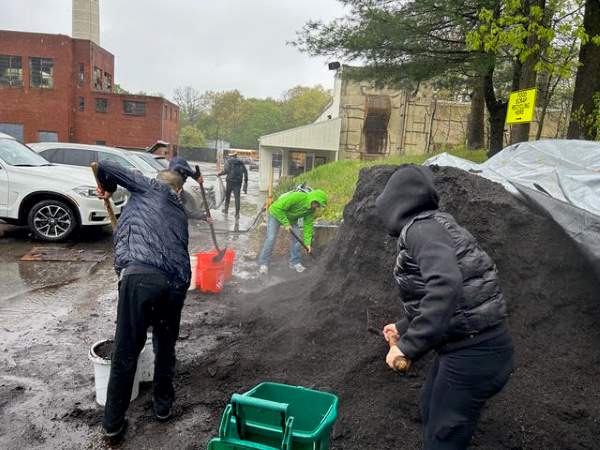
Despite torrential rain on Saturday, April 29, 2023, Michelle Sterling, a co-chair of the Scarsdale Conservation Advisory Council (CAC), reports that Scarsdale’s annual Compost Giveback Day was a huge success. Hundreds of Scarsdale residents were thrilled to receive high-quality food scrap compost for their gardens and flower beds. This compost was the product of the Village’s successful residential Food Scrap Recycling program, which has diverted over 2.500,000 pounds of food scraps from the solid waste stream since the beginning of the program in January 2017.
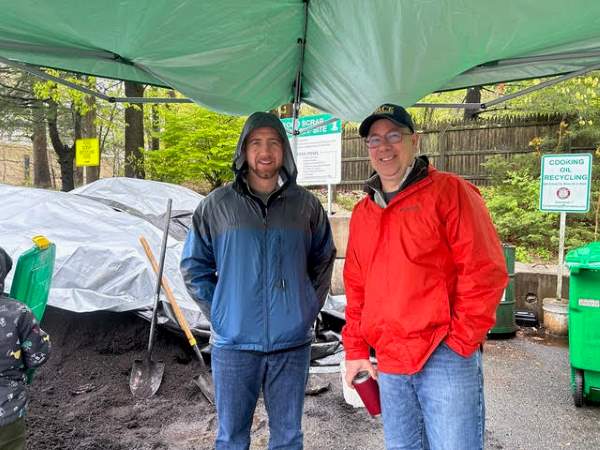
40 cubic yards of organic compost were distributed to a steady stream of eager residents throughout the day. Volunteers were on hand with educational materials and starter kits to encourage more residents to compost their food scraps. According to the University of Michigan School of Public Health, organic composting:
- Significantly reduces the amount of trash in landfills, cutting the costs and carbon emissions it takes to haul and process food scraps.
- Enriches the soil with nutrients, reducing the need for synthetic fertilizers and pesticides.
- Increases soil’s ability to retain moisture, helping to prevent erosion by reducing runoff.
- Prevents and suppresses plant diseases and pests.
- Reduces the fossil fuel emissions required to produce and ship soil-maintenance products.
- Helps remove carbon from the atmosphere by encouraging rapid plant growth.
The CAC’s work on Saturday was an essential step in improving waste reduction, energy conservation, and raising environmental awareness among the community.
 Dedicated volunteers of the CAC were key to the success of the day, and Sterling would like to extend a big thank you to the volunteers for their great help—especially in the harsh weather conditions. Sterling would also like to recognize Jeff Coleman and Tyler Seifert, the “dynamic duo” of the Scarsdale Department of Public Works (DPW), for their pivotal roles in coordinating and organizing the program and for their support of the sustainability efforts of Scarsdale.
Dedicated volunteers of the CAC were key to the success of the day, and Sterling would like to extend a big thank you to the volunteers for their great help—especially in the harsh weather conditions. Sterling would also like to recognize Jeff Coleman and Tyler Seifert, the “dynamic duo” of the Scarsdale Department of Public Works (DPW), for their pivotal roles in coordinating and organizing the program and for their support of the sustainability efforts of Scarsdale.
Compost Giveback Day is a thank you to our many residents, whose food scrap recycling each week plays a major role in protecting our environment. To sign up for the Scarsdale Scrap Recycling program, please email composting@scarsdale.com to help protect our earth!
Below is a photo gallery of Scarsdale's 2023 Compost Giveback Day:
